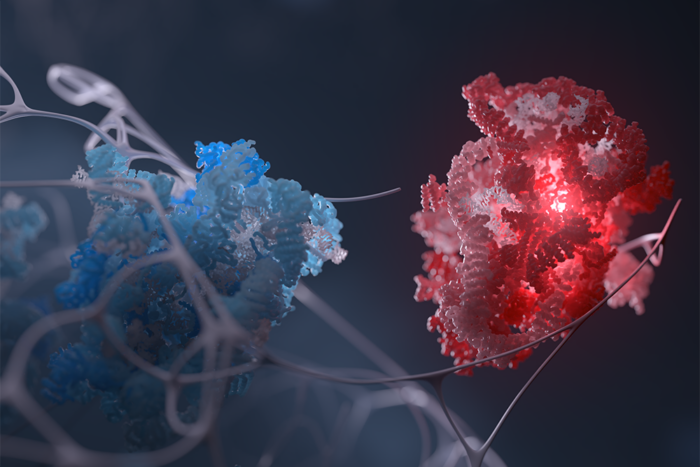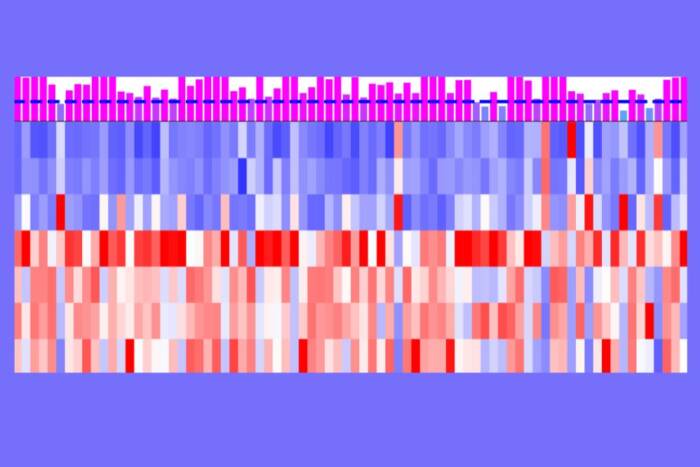Four NY Medical Institutions Join in Electronic Database Sharing Project
The libraries of four medical institutions in New York City will collaborate in a computer venture that provides more than 9,000 researchers and health care professionals with greater and faster access to biomedical databases.
Librarians from Cornell University Medical College, Hospital for Special Surgery (HSS), Memorial Sloan-Kettering Cancer Center and The Rockefeller University will make the project official in a signing ceremony planned for Monday, Aug. 28.
“The collaboration of these four New York-based medical and research institutions will allow shared access of equipment, software and databases that will greatly enhance the research capabilities of faculty and clinicians as they pursue and exchange information,” says Francis C. Lees, Ph.D., chief information officer and director of Rockefeller’s Information and Computing Services(opens in new window), which will oversee the daily operations of the project.
The project allows the institutions to acquire licenses jointly for computerized information such as electronic databases. Under the agreement, all of the libraries will get MEDLINE® and five of the seven science editions of Current Contents ®. MEDLINE ® is the U.S. (opens in new window)National Library of Medicine’s database of references and abstracts from 4,000 medical, dental and nursing journals. Produced by the Institute for Scientific Information, the Current Contentsreg. editions contain 5,500 biomedical and scientific research publications.
Three other databases will be shared by Cornell, HSS and Memorial Sloan-Kettering: Health Planning and Administration (HEALTH), CINAHL and CancerLit. HEALTH has 740,000 citations covering health facilities administration, health insurance management, and finance and economic issues. CINAHL is an index to literature from nursing and 13 allied health journals. CancerLit, produced by the (opens in new window)National Cancer Institute, is a database of more than 750,000 bibliographic records of the causes and treatments of cancer gleaned from 200 medical journals, conference proceedings and government reports.
Ovid Technologies, Inc., an international company based in New York City provides the libraries with the five databases. The company also provides customized software, Ovid ®, to access the databases and conduct searching by both expert or novice users.
An additional agreement allows each institution to have quick connections to the Internet, an international group of computer networks and resources. People at each institution can send and receive information at 10 megabits/second (Mbps) by linking to a Unix computer, called a server, on the Rockefeller campus network. This speed is nearly 350 times faster than most modems used by individuals for Internet connections from homes or offices. The Rockefeller server is attached at 45 Mbps, a speed known as T-3, to the (opens in new window)New York State Education and Research Network (NYSERNet), the oldest and largest regional data communications network in the United States.
Prior to the agreement, the four institutions had different NYSERNet links, at 1.5 Mbps, known as T-1, or slower speeds. A megabit is 1.05 million bits, about 75 pages of typewritten text. NYSERNet’s affiliates includes more than 750 organizations, from large research centers and universities to small public libraries and primary and secondary schools. Other members include hospitals, museums, businesses and Indian nations in the United States.
Participating in the signing ceremony will be Robert Braude, Ph.D., assistant dean of information resources at Cornell, Stephen N. Taylor, M.Ch.E., assistant director of information services at HSS, Jeanne Becker, M.L.S., director of library services at Memorial Sloan-Kettering and Patricia E. Mackey, M.L.S., librarian at Rockefeller.
Each library will pay licensing fees based on the databases they share. Each institution will pay $42,000 annually to NYSERNet.
(opens in new window)Cornell is a leader in advancing both high tech and high touch medical education. Established in 1898, Cornell affiliated with The New York Hospital in 1927. Today, Cornell scientists are well-known for investigations of diseases including AIDS, cancer, cystic fibrosis and benign prostate enlargement, as well as the fields of psychiatry, neuroscience and cellular and molecular biology.
HSS is the oldest orthopedic hospital in the United States. The hospital specializes in the prevention, diagnosis and treatment of musculoskeletal diseases such as arthritis and lupus as well as joint replacements and sports medicine. (opens in new window)The National Institutes of Health has designated HSS as a Multipurpose Arthritis Center and a Specialized Center for Orthopedic Research in Lupus.
(opens in new window)Memorial Sloan-Kettering is the world’s oldest and largest private institution devoted to prevention, patient care, research and education related to cancer. One of the Center’s greatest strengths is the close collaboration between its scientists and clinicians, and the rapid translation of results from the laboratory to the bedside.
For more information at:
Cornell, call Myrna Manners at 212-821-0560
Hospital for Special Surgery, call Kathleen McGovern at 212-606-1779
Insitute for Scientific Information, call Jacqueline Trolley at 215-386-0100
Memorial Sloan-Kettering, call Christine Westerman at 212-639-3627
National Library of Medicine, call Bob Mehnert at 301-496-6308
Ovid, call Mark Fish, 212-563-3006 x432


